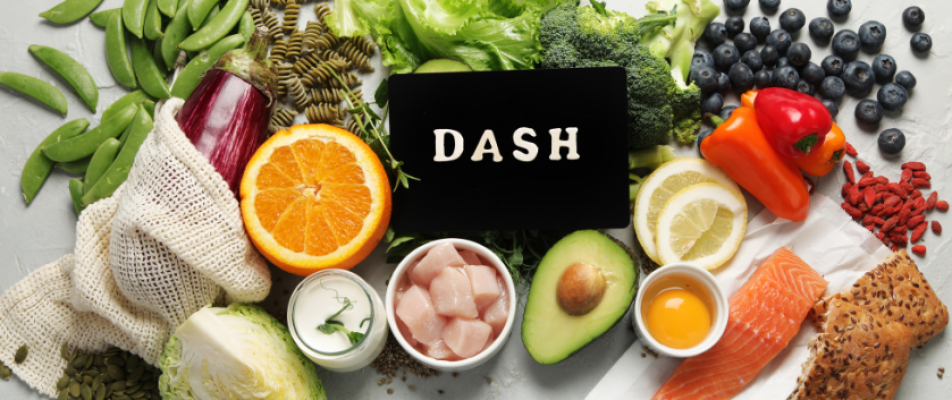
Intentional Nutrition: Eating for Your Body
Your Best Diet for Longevity, Blood Pressure + Brain Health
Breaking down the Mediterranean, DASH and MIND diets.
Clarity, longevity and blood pressure health is important at every age. The Mediterranean (MED) diet is a well-known diet promoting health and longevity. The Dietary Approaches to Stop Hypertension (DASH) diet tweaks the MED diet for blood pressure health. While the MIND diet is a relatively new framework that specifically speaks to brain health.
I thought it might be useful to look deeper into the MED, DASH and MIND diets to clearly pinpoint the overlaps and differences. Then, perhaps you could choose your best diet for your goals. Let’s investigate.
Your Goal: Longevity and Overall Well Being
Your Diet: The Mediterranean Diet
I have personally and professionally embraced the Mediterranean diet because it is approachable, do-able, delicious, flexible and relatable. Not a lot of crazy ingredients and not so restrictive. But, with dementia in my family, it would be good for me, and maybe many of you, to have more info on what’s best for overall brain health.
Important MED diet components:
- Fruits + Vegetables: Eating seasonal and a variety, with one eye towards balanced blood sugars. Eat low glycemic foods for fewer sugar spikes and more sugar balance
- Whole Grains: Eat fibery bread, ensuring both soluble and insoluble fibers for good digestion and absorption, and to feed the healthy gut flora
- Plant + Animal Proteins: Eat beans, lentils, fish, chicken, lean meat, eggs + some soy
- Lots of olives + olive oil for healthy fats
- Nuts + Seeds: Adding more healthy fat and fiber to the diet
- Eat sweets sparingly, with added sugar comprising less than 10% of total calories
- Try honey, not manufactured or processed sweets
- Minimal dairy
- Wine
Your Goal: Lowering High Blood Pressure
Your Diet: The DASH (Dietary Approaches to Stop Hypertension) Diet
Developed by the National Institutes of Health to lower the risk of and treat high blood pressure, which impacts about half of American adults (yikes!), this offshoot of the Mediterranean diet focuses more on lowering high blood pressure contributors.
Important DASH diet components:
- Fruits + vegetables
- Low fat or fat-free dairy products
- Whole grains only
- Fish + poultry only
- Nuts + beans
- Reducing sodium
- Reducing added sugars including sweetened beverages + red meat
- Limiting saturated and trans fats including full fat dairy
At 2,000 calories (pretty normal) per day, this translates to about 6 to 8 servings of grains or grain products, 4 to 5 servings of vegetables, 4 to 5 fruits, 2 to 3 low fat dairy foods, 2 or fewer 3-ounce servings of meat, poultry, or fish, 2 to 3 servings of fats and oils and 4 to 5 servings of nuts, seeds or dry beans per week. Limiting sweets and added sugars to 5 servings or less per week. Compared to the MED diet, this protocol increases fiber from grains, lowers fats, and reduces sodium.
Your Goal: Improved Brain Health
Your Diet: The MIND Diet (a MED + DASH Mashup)
The Mediterranean-DASH Diet Intervention for Neurodegenerative Delay, or MIND diet, targets the health of the aging brain. It was developed to aid in prevention of cognitive decline. Introduced in 2015, by Rush University Medical Center + Harvard Chan School of Public Health, the research team looked at over 1,000 participants and identified brain-healthy foods and nutrients with serving sizes that are protective against dementia and cognitive decline. This framework was more positive than the Mediterranean or DASH diet frameworks.
MIND Diet Framework:
- Whole grains (3+ servings/day)
- Vegetables (other than green leafy-1+ servings/day)
- Green leafy vegetables (6+ servings/week)
- Nuts (5+ servings/week) esp walnuts
- Beans (4+ meals/week )
- Berries (2+ servings/week)
- Poultry (2+ meals/week)
- Fish (1+ meals/week )
- Olive oil
- AVOID: Higher saturated + trans fat, so very limited pastries and sweets, red meat, cheese, fried foods, butter, margarine, alcohol
Compared to the MED diet, this framework is more veggie-heavy, for their vitamins including beta-carotene, because it splits recommendations from all veggies to green leafy servings and other veggie servings. Both are important. Also, it specifically promotes colorful berries due to their powerful plant flavonoids and limits or prohibits alcohol.
We’ll continue to keep an eye on further research developments, but feel that these three nutrition approaches are great options for those looking for answers to specific nutrition and health goals.
Want to learn more? Reach out to book a complimentary consultation with a holistic nutritionist and find the best diet to reach your personal goals.
